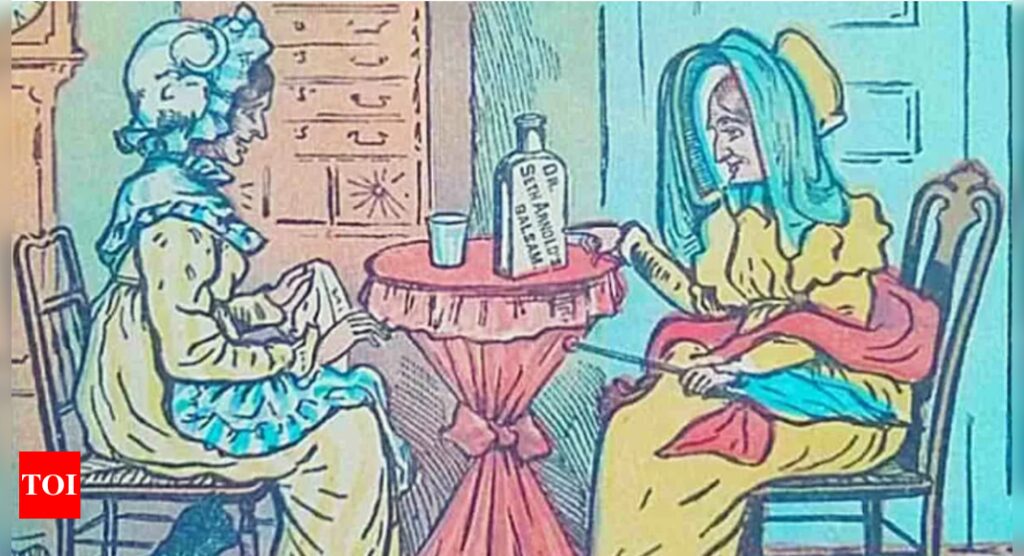You are a genius if you SEE the cat! (Credit: jagram Josh) Optical illusions are one of the few things that have captivated human curiosity for generations. These amazing puzzles with illusions impact our perception, offering us a wonderful form of deception that we don’t mind enjoying. Most forms of deception cannot brag about it; it’s more engaging when the optical illusion makes us solve some puzzles to understand the meaning underneath. They show how easily the eyes and brain can be fooled, making people question things, look closer, and think more deeply about things.
Such optical illusions are interesting because they represent the perfect symbiosis between art and science. These peculiar exploits of human vision can be interpreted in many ways that create duality, making them so fascinating that they are more like puzzles than pictures.

You have top-notch eyesight if you spot the kitten in less than 5 seconds! (Credit: Jagran Josh)
In the illustration there are two women with a black cat. The cat sat next to one of the women. The theme gives a classic feel. Between the two ladies there was a table, on the table was a bottle of medicine. The woman on the right points to that bottle.
Your job is to find the kitten hidden in the picture. The black cat is sitting on the left side of the picture and is not the kitten we are looking for but the mother cat. In fact, we have to look for the cleverly disguised kitten somewhere in the scene and you only have five seconds to spot the kitten.
Can you find the kitten in 5 seconds? Well, if you can, then you are part of a group that makes up 1% of the population. This task is quite complicated, especially since the kitten is very skillfully disguised and perfectly blurred in the classical background of the picture. The details of the images, the women’s poses and the objects surrounding them, all add to the appeal of the challenge. So if you can spot the kitten quickly, kudos to your observation skills and sharp eyes!
If you can’t spot the kitten, don’t panic! Let’s look at this image again with a different perspective. Is it true that the kitten could be hiding in plain sight? Okay, here’s your suggestion: take a closer look at the women’s clothing, especially around their heads. Now have you noticed a hidden cat? The kitten is upside down and looks like a hat on the girl’s head. To solve optical illusions, focus on changing your perspective and analyzing visual elements. Start by observing the illusion from different angles or distances, as this can reveal hidden patterns. Break an image into smaller parts to understand how shapes, colors, and lines interact. Realize that optical illusions often exploit the brain’s tendency to make quick assumptions based on past experiences. Relax your concentration, as staring too intently can reinforce the illusion. Comparing the illusion with reference material or reading about its mechanics can also help uncover how the brain is tricked, allowing you to “solve” it. Solving optical illusions on a daily basis can enhance cognitive abilities by stimulating brain activity. These puzzles challenge the brain to think creatively and critically, improving problem-solving skills. Regular exposure to optical illusions also enhances focus and attention to detail, as the brain learns to identify subtle visual cues and patterns. Furthermore, using illusions strengthens visual perception, helping the brain process complex images faster. This daily mental exercise can boost memory, concentration and even reduce the risk of cognitive decline. Overall, solving optical illusions keeps the mind active, improving mental agility and visual perception.



